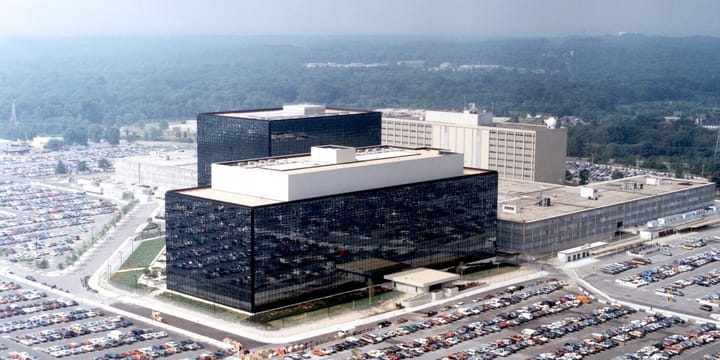How America's racism became a national security threat
Foreign bots spewed much of the racist rhetoric that followed Charlie Kirk’s killing. But it gained traction only because plenty of homegrown racism exists to exploit.

When Charlie Kirk was fatally shot on a Utah college campus, law enforcement had no leads on the shooter's identity. Yet within hours, social media exploded with racist vitriol and calls for anti-Black violence—much of it amplified by foreign bot networks seeking to destabilize America from within.
The bot problem is real
According to Kali Holloway's reporting in The Nation (summarized here) , analysts from the Center for Internet Security and the Institute for Strategic Dialogue identified bot accounts deliberately spreading inflammatory content after Kirk's death. These accounts were Russian, Chinese, and Iranian. These foreign actors, Utah Governor Spencer Cox warned, were intentionally trying to "instill disinformation and encourage violence."
The scale of bot activity online is staggering. Studies show bots now account for roughly 50 percent of all internet traffic, and cybersecurity experts estimate that 64 to 75 percent of Twitter/X users are bots—a far higher percentage than other social platforms. Within days of Kirk's shooting, tweets calling for retaliatory violence had amassed 43 million views.
Imran Ahmed, CEO of the Center for Countering Digital Hate, explained.:
"This is a really prime example of how the distorted lens of social media algorithms can turn perception into reality.... We all start to feel like the world is worse than it really is."
Bots only exploit existing hate
The truth is uncomfortable. Such foreign interference only works because it taps into America's deep existing racism. Regardless of the shooter's identity and the probability that they were white (Utah after all), Black communities immediately became targets.
The day after Kirk's killing, at least six historically Black colleges and universities received terroristic threats. Threats that forced emergency lockdowns. One manifesto sent to NYU and Southern University declared intentions to "shoot every n***** I see." [Ed. Note: Stars mine]
Days later, a group claiming Kirk as inspiration showed up at Tennessee State University in MAGA gear with signs reading "DEI should be illegal," deliberately provoking students to then portray them as violent on social media.
HBCUs were created because Black Americans were barred from white colleges. Despite their separate nature, they remain vulnerable to "America's age-old predictable scapegoating of Black communities." .
A well used playbook
Of course, there's nothing new under the sun. Before the 2016 election, Russia's most prolific troll factory launched a massive operation that set up websites publishing pro-Trump stories designed to sow racial discord. The Kremlin-backed group bought over 3,500 Facebook ads, the majority focusing on race directly or indirectly through "issues fraught with racial and religious baggage."
A 2019 Senate report concluded that Russian cyber interference had an "overwhelming operational emphasis on race," with African Americans targeted more than any other group. These tactics continued through the 2018 midterms, 2020, and 2024 elections—including fabricated videos of supposed Haitian immigrants voting illegally and depictions of Black men attacking a white woman in Trump gear.
As Holloway notes in the article:
"American racism is so reliably reflexive, it gives our purported enemies an easy and surefire way to crush national unity and break down our barely-there democracy from within."
The X factor
The problem isn't just foreign bots—it's also the platform they exploit. After acquiring Twitter in October 2022, Elon Musk has made the site a haven for hate speech, which jumped 50 percent following his takeover. Likes on hateful posts increased 70 percent, according to a 2025 university study. By April, NBC found "a flourishing Nazi network" operating under Musk's ownership.
After Kirk's shooting, Musk himself tweeted to his 225 million followers that they must "fight or die," unquestionably escalating tensions. Meanwhile, a 2024 study found that just 45 bot-like accounts made 610,000 tweets in a month, generating 4 billion impressions—pivoting seamlessly from one inflammatory event to the next.
Musk has little incentive to clean up the platform. Bots inflate user numbers, which helps sell ads. He's also put Twitter's programming interface behind a paywall and sued researchers investigating the problem.
America is leaving itself defenseless
The Trump administration has only exacerbated the vulnerability. For example, the State Department recently shut down the Global Engagement Center, which tracked Russian, Chinese, and Iranian disinformation. Presumably because of Russian interference in Trump's first election.
Other groups within the FBI, DHS, and ODNI that monitoried foreign interferences have also been shuttered since Trump reentered office in January.
In response to reporting on foreign exploitation of Kirk's shooting, China's Global Times retorted that "media hype aimed at distracting attention toward external powers serves as little more than an ostrich burying its head in the sand." The sand is real and it insulates from the actual cause—America's reflexive and foundational racism.
Treating the symptomms isn't enough
Countering foreign bots is necessary but insufficient. The deeper problem lies within American culture. Our persistent, exploitable racism. Foreign adversaries know exactly how fragile this makes the country, and they'll keep weaponizing it as long as it works.
We must do more than merelye countering foreign interference. Instead, we must clean our own house. This means even the the ugliest corners—those we ignore because they are hard. As Holloway concludes:
"Otherwise, a house so readily divided is sure to burn in someone else's war."
Until America confronts its foundational racism (hard) and its digital vulnerabilities (easy), foreign actors will continue finding fertile ground for chaos. The national security threat isn't just the bots—it's what makes us susceptible to them in the first place.
Non in cautus futuri.

